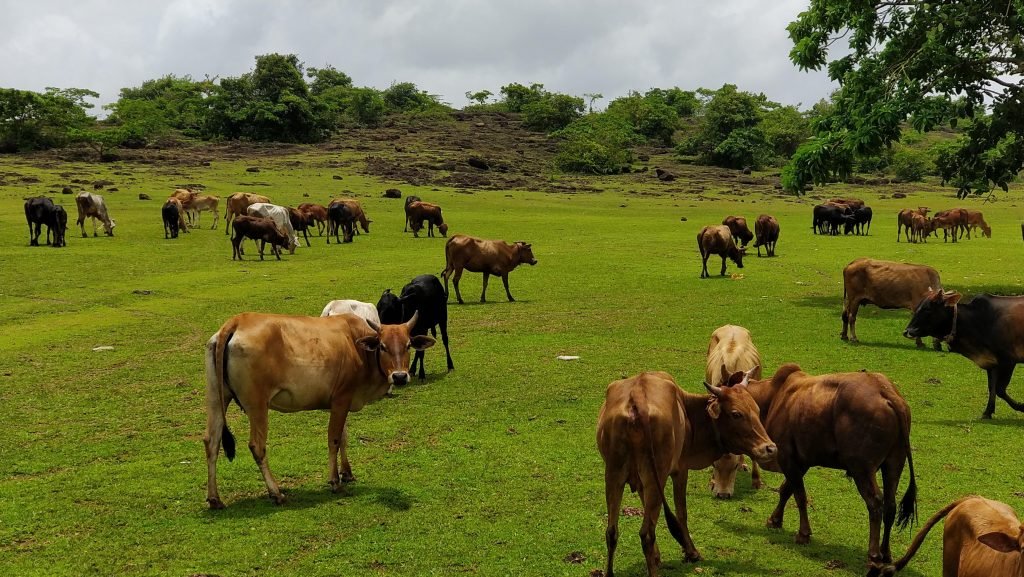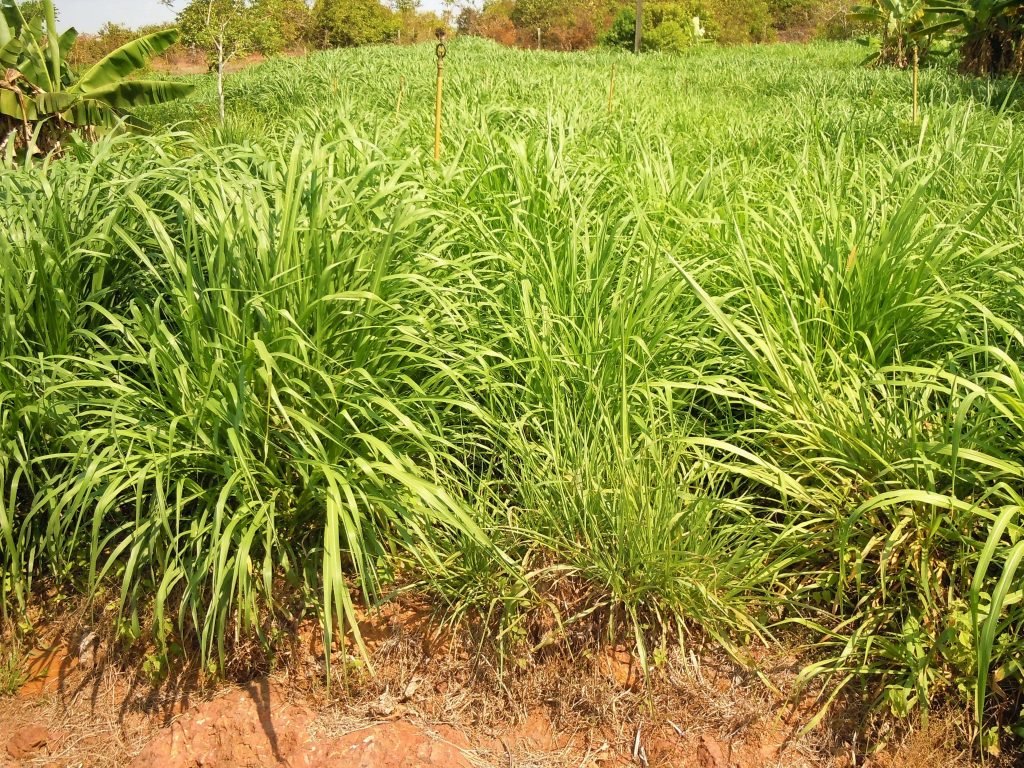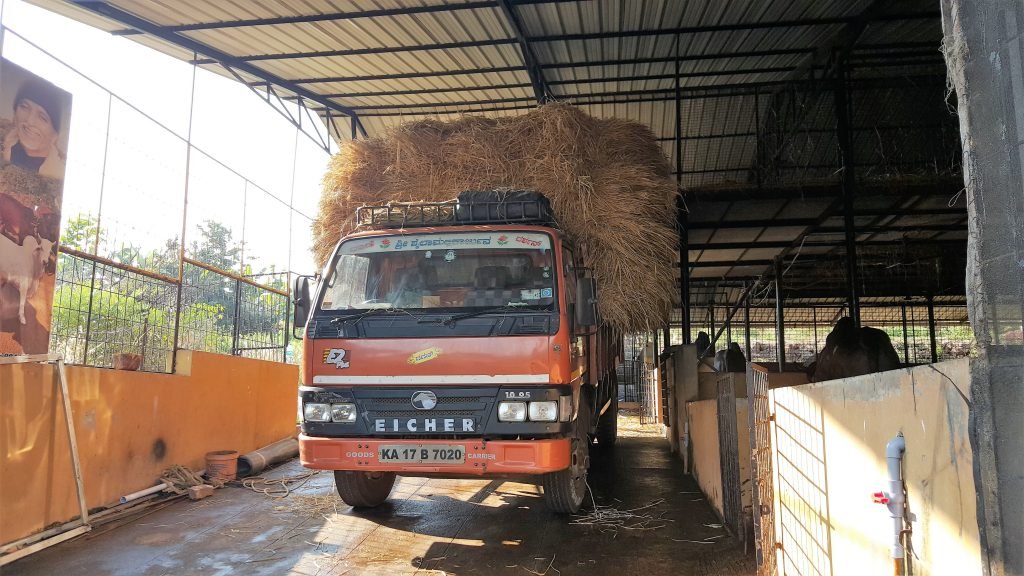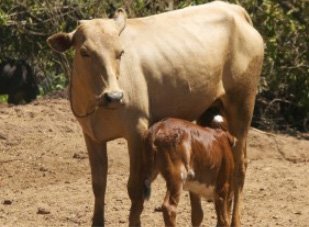Cow Feed




What is cow feed?
Cow feed refers to the food materials offered to domesticated cows maintained in pens. They include several components contributing towards different nutritional factors required for the cows. Energy giving comprising carbohydrates make the bulk of the food materials supplemented with nutritional components facilitating growth, immunity, milk production, etc.
Basic Components of Cow Feed
Broad components of cow feed are classified as dry matter, digestible crude protein, and total digestible nutrients (TDN). The mineral and salt components of the cow feed include Calcium, Phosphorus, Magnesium, Sodium Chloride, Iron, Iodine, Copper, Manganese, Cobalt, Fluorine, Zinc, Sulphur, and acid insoluble ash. Of these, Calcium and Phosphorus are more important, especially for milking cows and hence often supplemented in the form of Dicalcium Phosphate (DCP) along with TDN. The TDN is made of a concentrate mixture of energy sources such as cereal grains (maize, jowar), tapioca chips, protein supplements such as oil cakes, and laxative components like brans (rice bran, wheat bran, gram husk). In addition, mineral components and trace elements are added to the concentrate up to the level of about 2% of the total composition. Depending on the location and agricultural crops available, variations can be observed among the cow feed materials used in dairy farming. For example, the paddy hay may be replaced with hay of maize, wheat, etc., where those crops are grown in plenty and rice is scarce.
Types of Cow Feed
The major proportion of the basic cow feed is the dry matter (roughage) which makes the staple food for the cattle. The common materials representing dry matter in cow feed are green grass, paddy straw, legume fodder, etc. Good quality of dry matter reduces the requirement of the food concentrate in the form of TDN. It safeguards the immunity of the cows as well. In the case of pasture feeding cows, the requirement of dry matter is minimal, as they get these materials during open grazing in the field.
Cow feed and Feeding tips
The quality, quantity, and the schedule of offering cow feed matters a lot in dairy farming as per the tips of dairy research organizations. By optimizing the food and feeding schedule of the dairy cattle, minimizing wastage of nutrients and maximizing milk yield can be achieved. Therefore, the choice of food material and timings of feeding are highly important for making the dairy farming successful and flourishing. The regularity of feeding is crucial and abrupt changes in the feed substance need to be totally avoided. It is always advisable to feed the concentrate mixture of nutrients like the TDN before milking and generally in two doses (half of the total quantity prescribed for one day) one in the morning and one in the evening. The dry matter is fed after milking and watering, twice daily. High milk yielding cows may be fed thrice a day with both dry matter and concentrate mixture. Silage or any other feeds, which may impart flavor to the milk, are generally fed after milking.
Help Us Now

Donate to Surabhivana Gaushala to save and protect Indian Cow Breeds.
All donations are exempt under Section 80G of the Income Tax Act, 1961. All donation receipts shall be mailed to the address given by the donor or may be collected in person, at request.
Click the below button to donate through credit cards/debit cards or Net Banking via Razor Pay.
